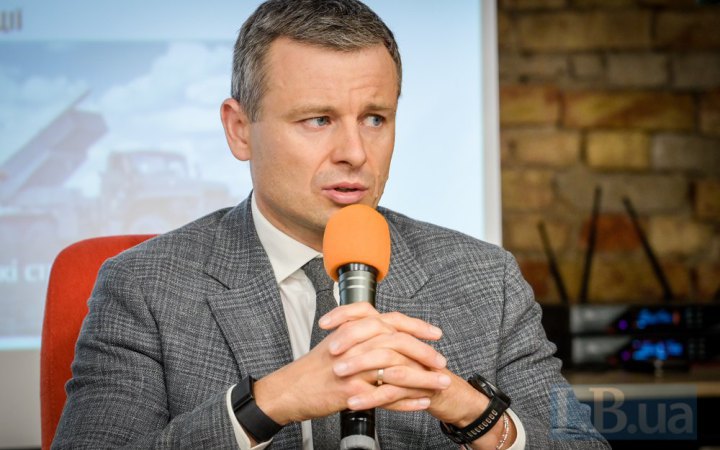
Steps for tax hikes are forced and quick
"We had quite a few interesting and unpopular things. With our offers, we found enemies wherever we could," says Serhiy Marchenko, speaking about the Ministry's initiatives to raise taxes. And each of them was met with resistance from the businesses concerned. As, for example, with the taxation of parcels.
"We have formed a coalition against ourselves. I am accused [by business representatives] of not discussing anything with them. But unfortunately, such discussions do not produce the truth. There is no truth. There are no results. Because there are opinions, and everyone will remain in their own. And we need to make decisions. And sometimes there is no time for them," the minister adds.
He stresses that the tax hike is a necessary step. The government understands the consequences, understands how it will affect business, but other options for filling the budget have been exhausted.
"Since the beginning of the war, we have significantly increased the volume of domestic borrowing. And now we are close to, let's say, the limit beyond which any new borrowings do not create new expenditures. They simply fuel the existing system. And everything we borrow is only to repay the payments that have already been made and to service these payments. So this has a certain limited effect and a certain limit.
In addition, we are in the IMF programme, and we need to maintain debt sustainability within the programme. This implies, among other things, the stability of the debt market. So, we can say that this option is currently quite stressed. I am grateful to the National Bank for helping us to create the conditions under which the market is attractive. But in general, it is exhaustive, it is not infinite," Marchenko said.
Another option, he said, is external borrowing - the funds we raise from our partners. This year it is USD 41.3 billion, next year it is expected to be USD 38.4 billion, but no one can guarantee them.
"This is not a given. No one is promising anything to anyone. I remember the first quarter of this year, when we had only 10% of the required amount of foreign aid due to irregular financing. And this is a fact that must also be taken into account. No one promises that we will be funded constantly and for a long time. The fact that we now have these options is the result of some work and the understanding that it will be extremely difficult for Ukraine without help," the head of the Ministry of Finance said.
The next option that the Ministry of Finance is often accused of using to optimise the budget is to cut spending.
"I would like to remind you that we have 2 trillion 223 billion in expenditures, including military expenditures. If there are any opportunities to optimise them, I want to see the person who is now ready to optimise military spending and move it in the right direction.
Relevant organisations have been set up, such as the Defence Procurement Agency, and the Ministry of Defence is working there, but at this stage, let's just say that the Ministry of Finance, as a fiscal authority, has the ability to work with all the key spending units... and we do not discuss any additional requests from them. Can I put it this way? We do not discuss them. We are not able to fulfil them all, because sometimes there are mythical requests for trillions of trillions, but we always fulfil practical requests. And the latest budget changes are a consequence of the fact that we are at war," Marchenko adds.
According to him, social spending was cut by 50 billion hryvnyas, a move that was also criticised.
"Any cuts in spending have certain consequences, and there are either specific people or specific organisations behind it, who will lose their jobs, or we just need to tell them: that's it, you cannot be useful to this state. And it's not easy," the minister said.
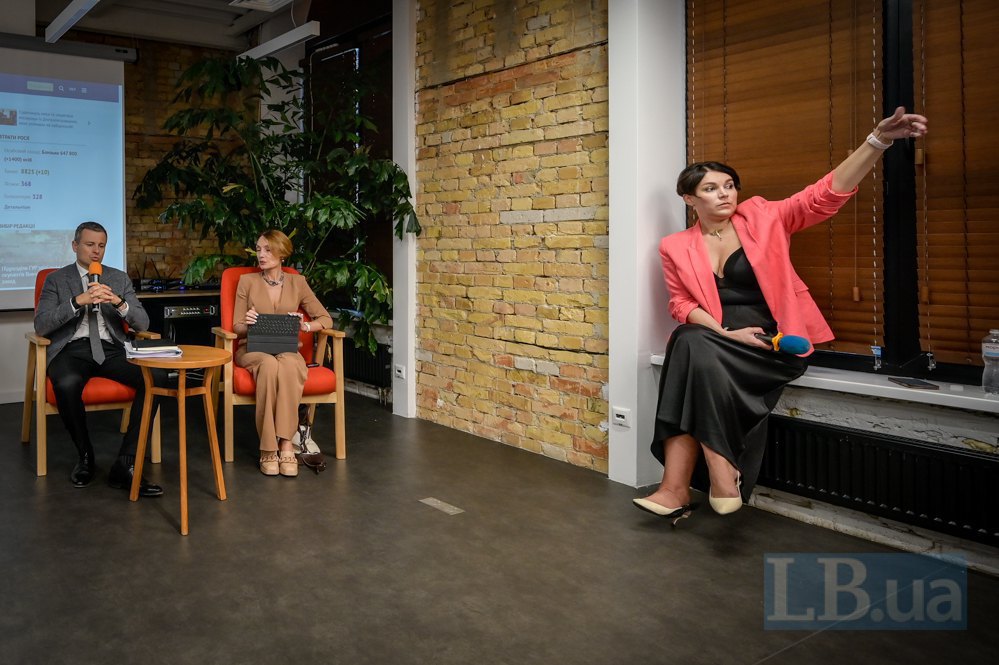
At the same time, he explained the reduction of the budget for the veterans' policy by the failure to allocate investment expenditures. According to the Minister of Finance, the veterans' policy will receive its funds between the first and second readings, when a new allocation of investment expenditures is introduced.
He explained the appearance of the Road Fund in the draft budget as follows:
"The logic is very simple, it is not supported by anyone, but it seems clear to us. 50% of these funds are for debt service. The other part is the maintenance and repair of roads. It is uncomfortable to carry out maintenance and repair of roads from the Reserve Fund. If you think that no one repairs them or they do not need to be repaired, this is not true. There are constant requests, especially in the frontline regions, where there is a need to transport wounded soldiers, and we need good roads. We also have to provide this.
We, as the Ministry of Finance, feel more comfortable with a fair distribution, with an understanding of road prioritisation and with a body responsible for this - the Road Fund. That is why we are partially restoring it in the budget for 2025," the Minister said.
Thus, the Minister emphasises, the tax plan of the Ministry of Finance is due to the fact that "there is one specific problem in the country that needs to be solved - security. All other problems are secondary". That is why the Ministry of Finance is preparing ‘simple’ solutions.
"They are not simple in terms of political understanding, in terms of public consent, and business is not ready to support them. But from our point of view as the Ministry of Finance, everything is very simple. If the maths doesn't add up, let's think about how to make it add up. If it works out, everything is fine, we get through the year, we live for a year, we live for two years, and then maybe the war will end. It's a simple logic," Marchenko says, "and it doesn't arise because we don't perform our functions well, don't think about the future, or think about better times after the war rather than survival. It is simply because I remember the year 2022. It was, frankly, a nightmare.”
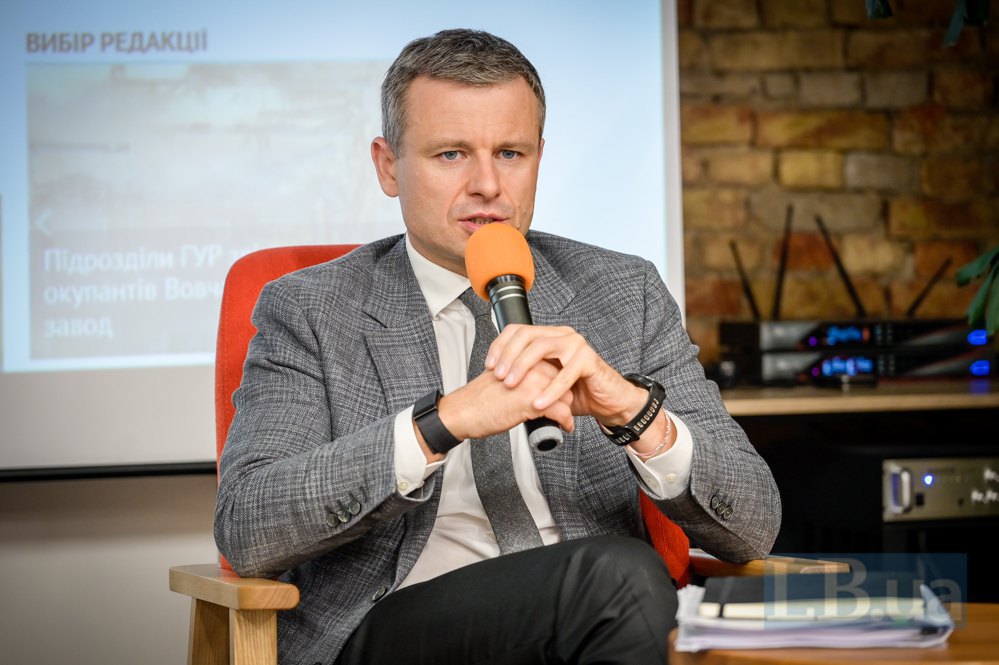
Marchenko recalled that at the beginning of the full-scale invasion, it was necessary to find $5 billion a month, and this was not always possible because partners were not ready to provide assistance even six months in advance.
During the discussion, the main battle among the speakers revolved around whether it was better to raise the military tax to 5% from 1.5% or to increase VAT by 2%. In the first case, taxes will increase only for those who receive "white" salaries. In the second case, it will be for everyone.
The Minister's position: "What is right is what gives 226 votes [for the adoption of the bill in the Verkhovna Rada]. Everything else is an illusion. If we don't get 226, it means we haven't finalised it. Therefore, any format, any combination, but to have 226."
Why there are no systemic reforms
The right systemic reforms always yield a positive result, but they are only possible with the leadership of the relevant departments and a strong team of ministers, says Serhiy Marchenko. But they also involve painful steps and communication risks. And at this stage, as a rule, everything comes to an end.
"There will always be criticism, it's normal. For example, you criticise us for the tax reform. Okay, I'm fine with that, because, basically, we live in this acid. If someone does not criticise us, it means that we do nothing. That's why I'm okay with being in an acidic environment, but most ministers who came to implement positive agendas are not okay with it. They are not okay with it because it's quite uncomfortable to be constantly criticised. I'm also uncomfortable, to be honest, but I'm somehow getting over it," the minister says.
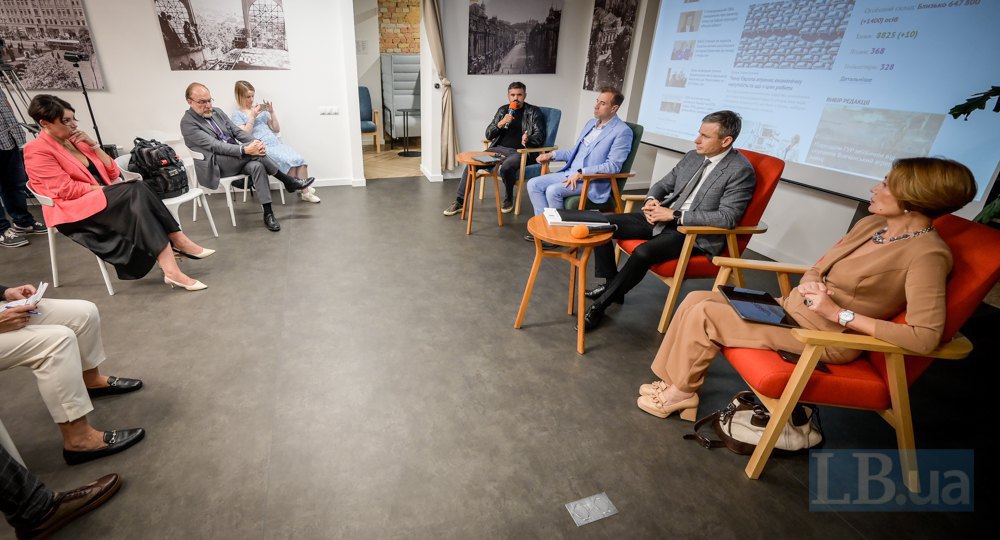
"To be frank, since the beginning of the war, I have been dealing with external issues for 90% of my time, because they produce results. You can criticise me for not dealing with customs, taxation, and these are fair criticisms, and I accept them. I really can't find the time..." Marchenko said.
At the same time, he urged critics and lobbyists of the ‘big beautiful changes’ to join the government, as this is the only way to be involved in their implementation.
"Do you think that in these conditions there is a queue of people willing to work? The Ministry of Finance is one of the systemic, imperfect ministries, but I believe that institutionally we are strong enough, there are no such people. Moreover, there is a constant outflow of intellectuals who speak English. ...It's going on all the time.
.... Again, I would recommend everyone to go and work in any governmental structure and understand that any decisions that may look great and reformist from the outside, in practice, involve certain consequences for actions and inaction and personal, political, and personal responsibility to one's family members, to the citizens of Ukraine. And this is a sobering consequence of all these discussions," Marchenko summed up.
Ministry of Finance against ‘preferential regimes’
The position of the Ministry of Finance on any tax privileges that apply, for example, to residents of Diia.City is simple and has never changed: the department is against it, says Serhiy Marchenko. But sometimes the issue gains the necessary political support, and it passes.

"Someone with 10,000 hryvnyas pays all taxes, while someone with 5,000 or 10,000 dollars does not pay taxes and thinks it's okay and normal because I am a superintellectual. ...We have a desire to equalise this system. But if you think that when we proposed to increase the military tax for all individual entrepreneurs, including Diia.City, we received only positive feedback, you are mistaken.
At the government meeting, this was discussed lively, and, unfortunately, my voice was the only one that said that it was about justice. There were different opinions, mostly positive. We did create the rules of the game. So let's put Diia.City out of the picture. But, again, I don't want to say whether it's right or wrong, because certain conditions have been created, and perhaps in the future it will have its positive benefits. It's hard for me to say. It's not about that now. So far, there are no special benefits for the state from this system. But there may be some in the future," the minister said.
Social contract
"We do not have a social contract, so we are trying to find who should be the first to start this process. Either the state, which should say that we have taken the right steps, we have a clear transparent system of decision-making, decent salaries, and now we believe that business should appreciate this and pay taxes.
Or, on the contrary, the business says: look, we have decided that we finally want a different system of government and we want to pay taxes honestly. But, accordingly, we will demand other solutions and a different quality system from the government we finance. So far, there is no such discussion, no one has started it," the Minister of Finance described the current relations between the state and business.
In the absence of such communication, the ministry is making quick decisions.
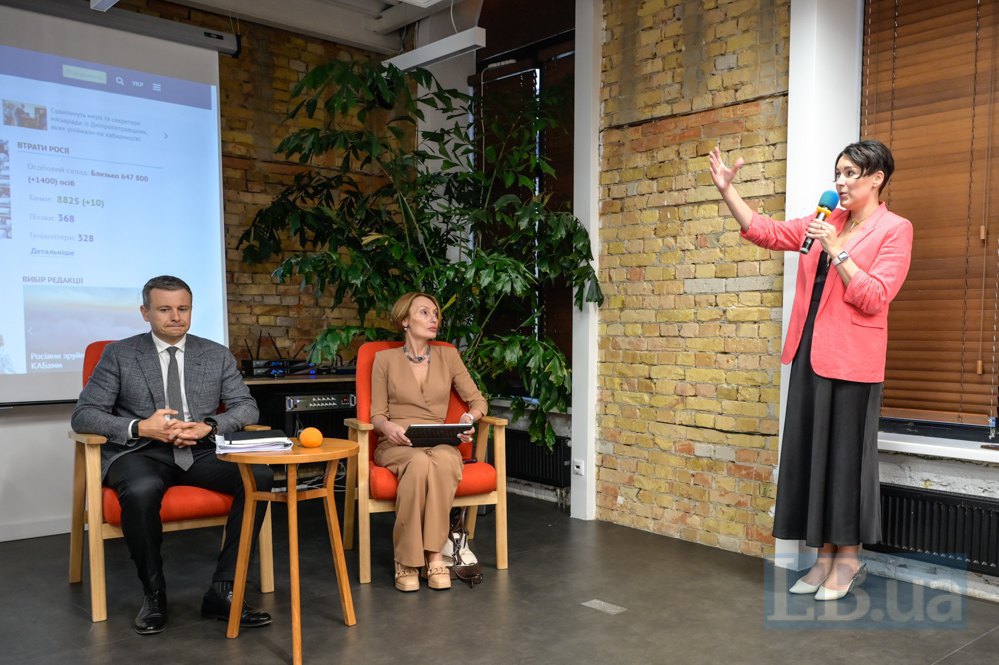
Prospects for economic booking
According to Serhiy Marchenko, this step should have been introduced long ago, as a lot of time has been lost, but it is still being discussed because of its complexity.
"When you talk to the military, you will never convince them that this should be done. Never. They say: let us also pay 35 thousand now and go have a little rest. And I don't know the answer to this question. Although I understand perfectly well what is happening. Because, relatively speaking, we see corruption in the military medical commissions, the territorial recruiting centres, and the border. People are all smart. They are all looking for a way not to do it.
Again, the reservation, we have it. A million men are booked. So if it was a truly transparent way, when you pay taxes, register, and this allows you to at least be guaranteed that you will not be caught, immediately ‘packed up’ and sent somewhere without you knowing, it would be better. But the discussion is not easy, because it must be combined with mobilisation plans, with an understanding of what is happening there, what the needs are, and whether they are completely closed. As far as I understand, they are not completely closed, so the issue of economic booking is still being discussed," Marchenko said.








